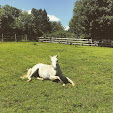What's harder, though, are the moments of confusion when someone assumes that I was born and raised Jewish until I say something about my parents going to church or visiting my grandparents for Christmas. Before I went to college, I didn't have to explain that I was a convert in the middle of what started out as simple conversation about plans for winter break or upcoming Jewish holidays.
Harder still is finding a place for yourself in the community when your family isn't Jewish. Since so much of Jewish observance is centered around family meals and celebrations, if your family isn't Jewish (or observant, as is the case for some) you become dependent on the goodwill of Jewish outreach services for finding a place to celebrate a Passover seder, light a menorah, make holiday food and celebrate the sabbath (unless you're lucky enough to be a college student on a campus with a large, engaged Jewish community).
That shaky interim period between calling your parent's house "home" and creating your own that seems to start in college I've tried to see as a time of intense religious reflection, because once you become responsible for a spouse and children you have much less time or space to make big changes religiously. When you're a convert and also the only Jew in your family, you're forced to think for yourself a lot anyway. Much earlier than most of your religious brethren, you have to keep track of the holidays for yourself, pay your own membership dues, find places to go for holiday meals and services and educate yourself. There are, I think, advantages to this, but it at times it feels quite taxing.
Given that most converts to Judaism that I've met seem to convert around birth (for adopted children) or marriage (for a non-Jewish person marrying someone Jewish), I wonder how many other converts have that awkward period of being tied to your birth home and needing to make your own home. For me, the ultimate fulfillment of marrying and having a family would be to observe the holidays in my own home, with my children, and not having to rely on others' charity. Even more than that, the relief of no longer feeling so stuck, in many respects, outside both my family and the Jewish community.
